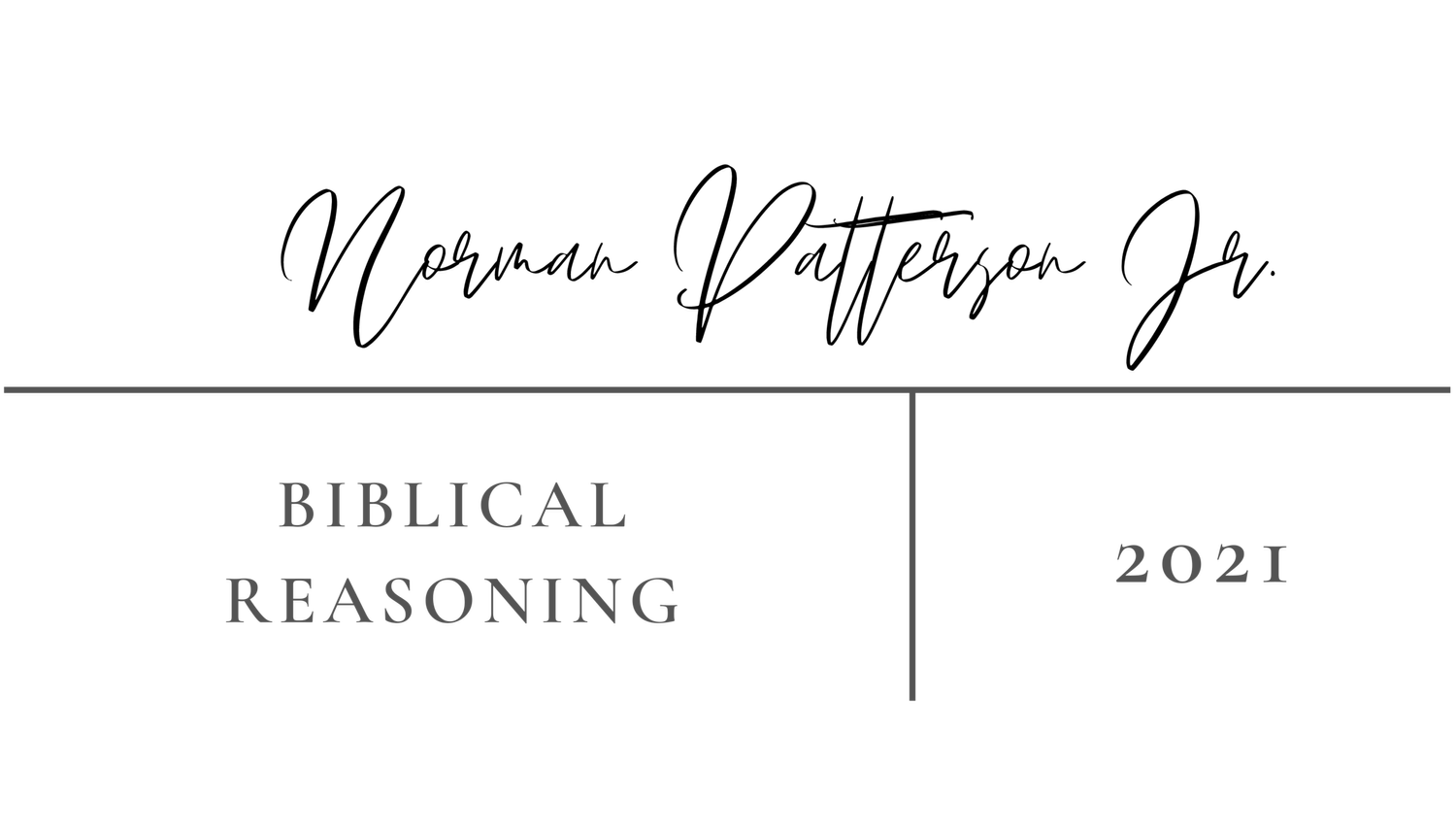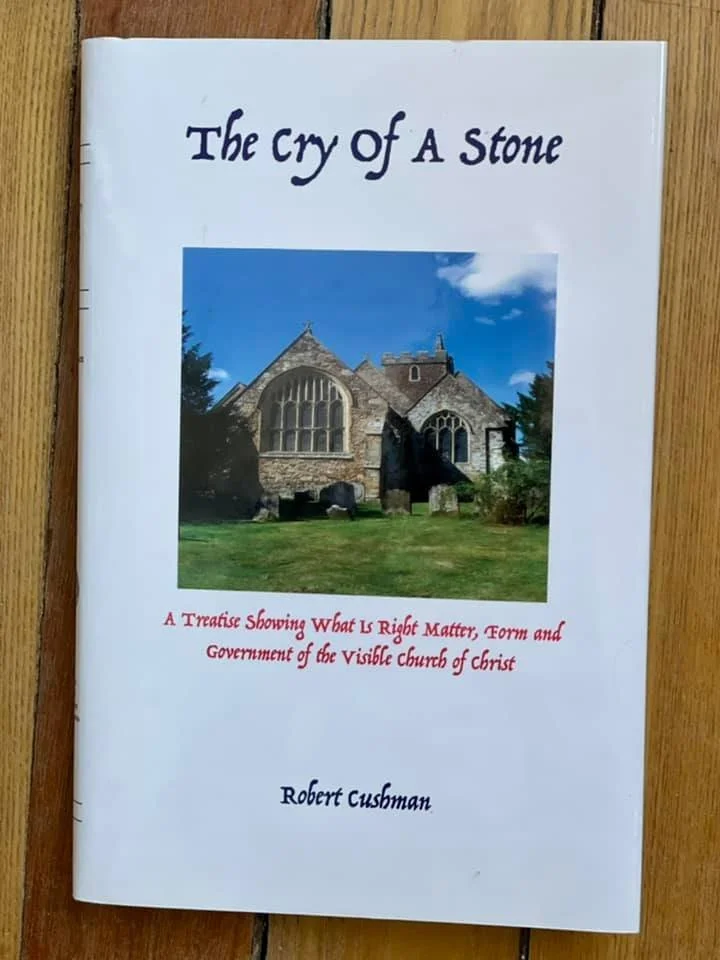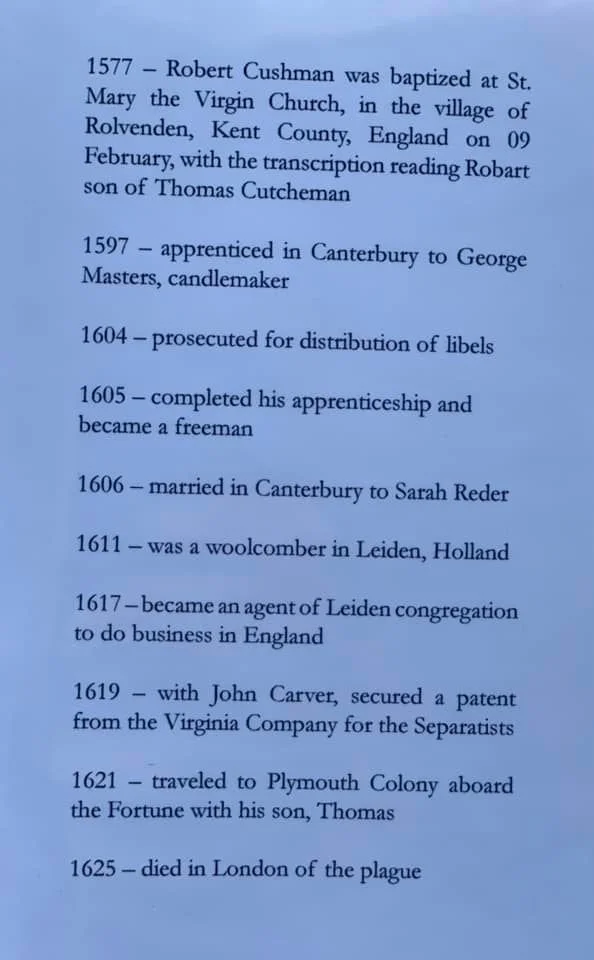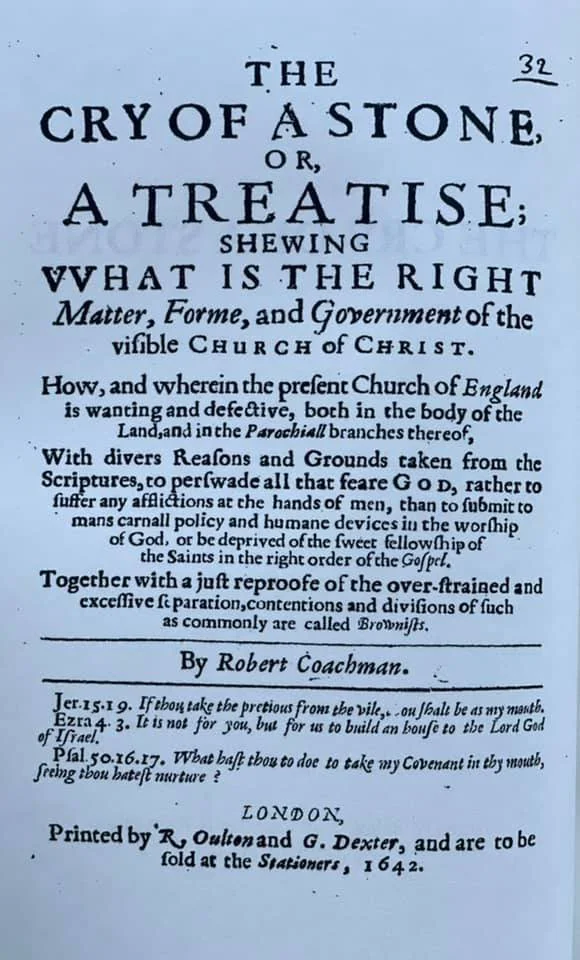The Spirit of Robert Cushman Lives On
I am so happy. I now have in my possession a book written by my multi-great grandfather Robert Cushman. As I read through this book, I am so encouraged. My and my brother Edward Patterson are not so different from our Great Grandpa Cushman. This encourages me a lot. I appreciate that his blood and passion run in our veins.
This quote is from the Introduction to The Cry of a Stone by Robert Cushman:
“The Cry of a Stone is important because it was the only known book written by a Pilgrim in 1619, close to the time of the Mayflower sailing. Robert Cushman indicated that he joined the Pilgrim Church when it was established in Leiden in 1609 and spent “ten yeerers in a society of as excellent Christians.” His book outlined solutions for establishing a Christian Church, explained how the Church of England was imperfect, clarified the need to establish a fellowship of Saints, criticized the strict separatists, and provided his eyewitness account of some of the practices of the Pilgrim Church in The Netherlands.
The short treatise was addressed to all Christians and included a call for them to separate or sequester themselves from the Church of England. These ideas were treasonous and Cushman would have been in danger of long imprisonment and perhaps death. Conceivably he intended to have the book published after he sailed to New England on the Speedwell and would be out of the reach of the authorities.” (Footnotes Excluded)
According to my Pilgrim Ancestry, written by a great great aunt Mary Patterson
“Robert Cushman and John Carver accordingly preceded to England and conferred with the London Company band - the above name “Robert Cushman” was the agent of the pilgrim band, who procured for them the Mayflower and the Speedwell…”
The Introduction to The Cry of the Stone further states
“Cushman had been involved in religious controversies since his early years in Canterbury., I 1603 he, with others, was convicted of spreading libels of “lorde have mercy upon [sic] us” by pinning them to Canterbury church doors. Perhaps they were intended as a protest against the Church of England. This case was brought to the attention of the Archbishop of Canterbury and the ecclesiastical commission.”
The Preface states:
“The primary principle is that there is only one form of true Christianity, revealed in the Bible in the practice and injunctions of the ‘primitive’ Apostolic Church. It was imperative that all true Christians acknowledge and obey these examples to the utmost of their ability, whatever the cost in worldly terms.
A second principle is based on the doctrine of ‘predestination,’ that God had already made His choice as to who would be saved throughout history. Only the ‘Elect,” ( i.e., ‘Saints’ destined for salvation) could be members of and benefit from the devotions in a true Church. The unregenerate or unsaved multitude had to be excluded from fellowship in any voluntarily-gathered and covenanted congregation organized to New Testament precedent. As all international or national churches on the Catholic, Orthodox or Anglican models not only demand universal membership but also corrupted Christian worship with man-made modifications, they could not be considered true Christian Churches at all. It was therefore essential that the faithful separate or ‘sequester’ themselves out of these false institutions and institute true churches of their own.”




